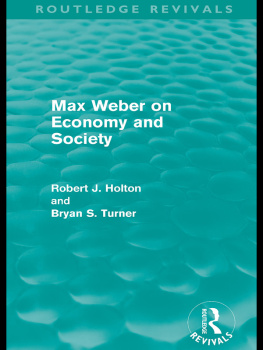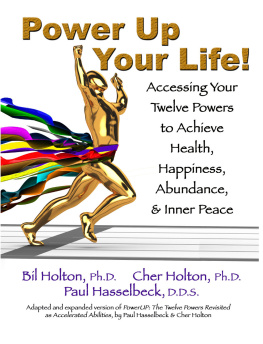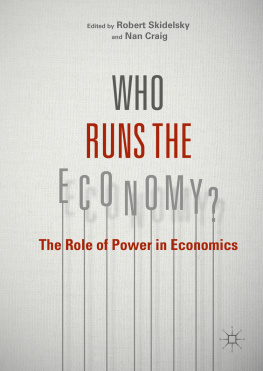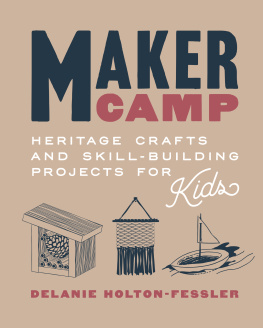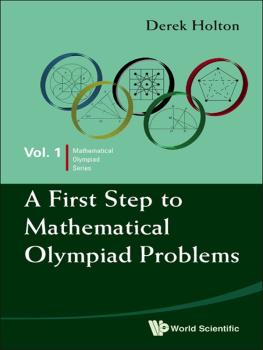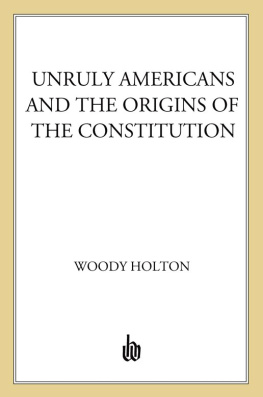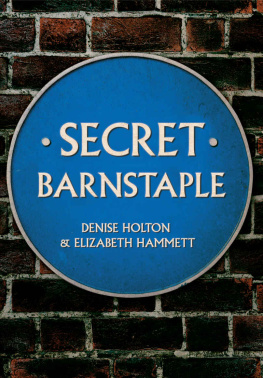
Economy and Society
This study aims to explain the relationship between economy and society. The author, Robert J. Holton, argues that the relationship is one of mutual dependence, in which political and cultural arrangements influence the functioning of economic life, just as much as economic contingencies influence the shape of politics and culture. This argument is pursued by means of a critical historical survey of major social scientific traditions, including economic liberalism and political economy.
The author moves on to discuss the differentiation and reintegration of economy and society, the viability of the market as an economic institution, the centrality of power in economic life, the significance of economic values and economic culture and the globalisation of economy and society.
This study is a major landmark in economic sociology. It draws upon the author's previous work in both sociology and economic history. It is of interest to a wide range of teachers and students of social science, including sociologists, economists and political scientists.
Robert J. Holton is Associate Professor of Sociology, Flinders University, Australia.
ECONOMY AND SOCIETY
Robert J. Holton
First published 1992
by Routledge
2 Park Square, Milton Park, Abingdon, Oxon, OX14 4RN
Simultaneously published in the USA and Canada
by Rougledge
270 Madison Ave, New York NY 10016
Reprinted 1995
Transferred to Digital Printing 2005
1992 Robert J. Holton
All rights reserved. No part of this book may be reprinted or reproduced or utilized in any form or by any electronic, mechanical, or other means, now known or hereafter invented, including photocopying and recording, or in any information storage or retrieval system, without permission in writing from the publishers.
British Library Cataloguing in Publication Data
A catalogue record for this book is available from the British Library
Library of Congress Cataloguing in Publication Data
A catalogue record for this book is available from the Library of Congress
ISBN 0-415-02909-0 (hbk)
ISBN 0-415-02910-4 (pbk)
For Polly and John Holton
Contents
This study has been Five years in the making. Particular thanks are due to colleagues and students in the economic sociology program at Flinders University of South Australia for their comments and criticisms. Ray Jureidini, Ross Boyd and Joan Carr have played a most important role in acting as a sounding-board for the ideas that make up the greater part of this study. I am also grateful to Sue Manser for her skill and unswerving commitment to accuracy in preparing the manuscript for publication.
This study was written while on outside study leave from Flinders University. The delightful working conditions in die Kentish countryside on Tong Farm contributed immeasurably to its completion.
The book itself is dedicated to my parents without whose encouragement and support I would never have embarked on a career as academic and author. Their experience in balancing die economic, polidcal and cultural aspects of household organisation has been a subtle but enduring influence on me.
R.J. Holton
Little Tong, Kent
January 1991
Economic issues are a major concern for contemporary individuals, households, communities and governments. Economic growth and decline, wealth and poverty, employment and unemployment, productivity and inefficiency, freedom of choice and inequalities of economic power - these represent some of the most pressing reference points by which the welfare of individuals, households, communities and governments are judged. While there are major differences concerning the priority that should be accorded economic matters, no-one can ignore their importance in modern life without being branded a hopeless utopian.
For large portions of the world's population in the Third World, economic issues are a matter of immediate material survival, of life and death. Even in the Western world, where material survival is, for most, more secure, economic issues dominate the agenda for everyday life and political debate. Rich and poor are inextricably implicated in economic life, even though their life-chances differ considerably through inequalities in control over economic resources.
Beyond the material struggles and exigencies of everyday life, economic questions are intimately bound up in the ways we understand the structure and dynamics of social life, and in debates about what kind of economic arrangements best advance human welfare. During the twentieth century these concerns have been expressed in the analysis of capitalism and socialism (or communism) as rival economic systems, and in public policy debates about the relative merits of free markets and public planning. Such debates raise questions about the actual operation of economic institutions such as markets, private property rights in economic resources, public planning agencies, and about the ways such institutions relate and interact with political and cultural institutions. Many questions arise as a result. These include the relative merits of capitalism and socialism, or markets as against welfare states, in generating economic efficiency and a just distribution of economic resources. Key values such as 'freedom', 'justice' and 'equality' are critical yardsticks against which the performance of economic institutions are judged.
Underlying these debates is the spectre of economic development as a dynamic yet destabilising process, that outstrips the capacities of human agencies to control it. The fear of social life being dominated by apparently uncontrollable economic processes has become intensified by the increasing reality of a world economic system. The anxiety is that global economic institutions and processes have become more powerful than either nation-states or social movements seeking to regulate economic life in accordance with individual, or community or national political objectives.
The analysis and debate of economic issues is shared - albeit in different ways - both by those inclined to measure human welfare primarily in material terms such as income and productivity, and by those who believe that economic considerations should be subordinate to 'higher' social values, such as equality, justice and environmental protection. This reminds us that economic analysis is far more than a technical matter, for it raises many of the most important values about which individuals and governments feel most passionately. Economic arrangements will always be matters for evaluation and moral scrutiny.
The present study is. however, not intended to resolve such matters of moral evaluation and political choice. The aim is rather to provide a survey of the principal ways in which economic life may be analysed and understood. Within this survey particular attention is given to the relationship between the economy and other aspects of society, such as the political system and cultural values. This book is centrally concerned with theories of economy and society. Such theories seek to explain how the economy and the wider society interact, how far economic forces determine the shape and fate of society, and how far social forces outside the economy proper in turn influence the course of economic affairs. These general themes are pursued through an analysis of key theories of economic institutions such as markets, property rights in economic resources and systems of production and consumption, together with the cultural meanings and values that have become associated with economic activity.




